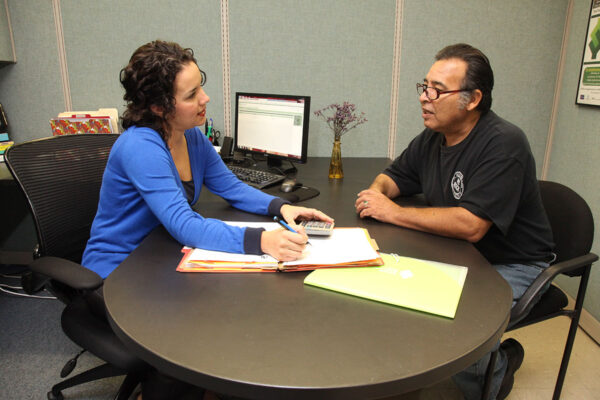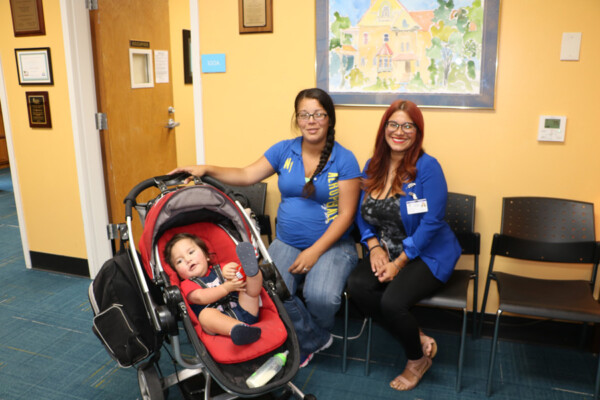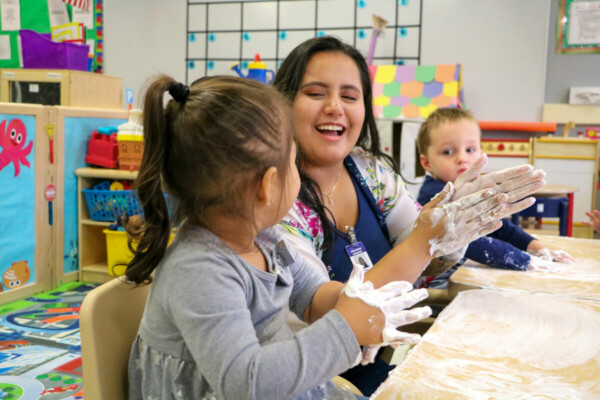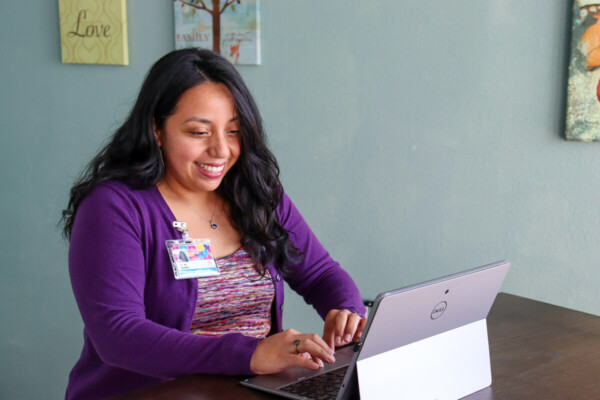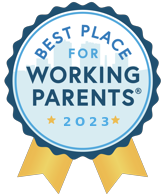Family Service Early Childhood Well-Being works in partnership with the adults in children’s lives, including their families, teachers, and caregivers, to provide behavioral health services for young children. Providing appropriate tools and resources to educators and parents/caregivers helps ensure children are achieving key developmental milestones and developing healthy relationships.
Why It Matters
School success, mental wellness, the ability to form healthy relationships, and general health and well-being begin at an early age. Early experiences shape our future outcomes and are pivotal to our development. Focusing on the overall well-being, including the mental, emotional, and physical wellness of children in their early years creates a foundation for growth.
90% of human brains are developed by the age of 5
Preschoolers are 3 times more likely to be expelled than children in other grades
Increasing high school graduation rates starts with access to early childhood development
Overview
Children develop with the help of the adults in their life, and a child’s environment shapes them at home and in the classroom creating the foundation of their adult lives.
Early Childhood Well-Being empowers teachers and parents with the tools and resources to ensure their children are healthy and successful.
After working with Early Childhood Well-Being, 85% of children show improvements in their behavior and/or resilience.
Like all of us, children are affected by what is happening around them. Behavioral concerns at home or in the classroom can be affected by other things happening in the child’s life, such as an addition of a new family member, marital difficulties between their parents, medical problems, home violence, and loss of a family member.
By addressing these other concerns and providing support to the child and their family’s life situation, we can help decrease behavioral challenges in the classroom – creating a better learning environment for them and their classmates. Addressing these matters early on helps prevent future school, health, work, and social problems.
Services
offered at no cost to families can include:
- Classroom Intervention and Observation: Observing children within their classroom to help assess their behaviors and their relationship with the other students and teacher
- Consultation: Collaboratively consult with parents, teachers, and other professionals who have a significant impact on a child to address behavioral concerns
- Assessment: Developmentally appropriate assessment tools are utilized to learn more about a child’s strengths and needs.
- Counseling: Individual and family counseling, including play and interaction-based therapies
- Case Management and Support Services: Connections to other resources and services for the child and their family to address their needs
- Parenting Education: Individual, home-based, or group-based sessions
- Special Education Advocacy: Help for families and educators to advocate for the needs of their child
- Trainings: Small and large-scale training on children’s mental health, trauma-informed care, and early childhood
These are all examples of children and families who could benefit from Early Childhood Well-Being services.
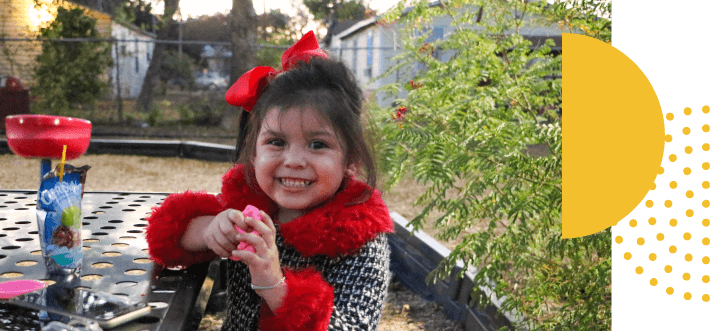
Our goal is to assess a child within the context of his or her family, school or preschool, and community, considering many issues that can affect a young child’s behavior and mental wellness. Our services build children’s resiliency and ability to succeed.
Integration
Family Service Early Childhood Well-Being program integrates trauma-informed services; and evidence-based practices and approaches throughout their services. Early Childhood Well-Being strengthens children’s relationships and helps pivot behavioral challenges.
Positive Parenting Program (Triple P)
This 8-week (one session per week) program offers proven parenting strategies to help your child be happy, confident, and successful.
The program provides tips on setting consistent rules at home and helps build stronger relationships while reducing stress for parents!
Teachers/Educators
A lot of children’s time is spent in school, and teachers work diligently to support students’ learning.
Sometimes, challenging classroom behaviors, unidentified developmental delays, or working with children that come from challenging home circumstances can create disruptions in classrooms. Family Service Early Childhood Well-Being professionals work closely with teachers and other school personnel to identify causes or contributing factors to a student’s disruptive or concerning behavior.
When working with schools and in classrooms, our professionals work collaboratively, respecting a teacher’s expertise and responsibility for a classroom and each student.
Our team works with the teacher as the lead educational and classroom expert and within a school’s positive behavioral support plan, assists with the Response to Intervention (RtI) process, works collaboratively with school counselors, social workers, behavioral specialists, and/or medical professionals, and educates the family on special education services if needed. When needed, we offer home visits, counseling, case management, and/or referrals to other providers, as well as work with families to address concerns related to the family or home environment.
Our partnership with schools decreases disruptive behaviors in classrooms, helping every child have the optimal learning experience and long-term success. Teachers report 90% of children who receive our services improve their behavior and/or resilience.
Learn more about effective behavioral classroom and management strategies for challenging behaviors.
Organizations and Child Care Centers
Early Childhood Well-Being conducts visits to child care centers, training for staff, and group sessions.
We partner with various organizations and centers throughout San Antonio and the rural area to assist children providers and provide training on early childhood development. Our partnership with each center is customized to their team’s needs.
Families/Parents
Parents and caregivers want to do the best they can to ensure their children are and will be happy, healthy, safe, and successful.
Raising children does not come with an instruction manual, and sometimes parents can use a little encouragement, help, and guidance when concerns arise. Early Childhood Well-Being can help with behavioral and developmental challenges at school and at home.
Sometimes, environmental changes affect the child, such as the recent death of a family member, the divorce of parents, or the transition to a new home. Early Childhood Well-Being gets to know your child and help them through their specific situation.
For the convenience of families, Early Childhood Well-Being professionals can work in schools, childcare centers, in community settings, in the child’s home, or in our offices to offer behavioral health services. For our clinicians to work in a classroom or with teachers, parents usually have to work with those school districts, teachers, directors, or principals to allow our staff to visit them on-site in their classrooms.
Special Programs and Integrated Healthcare
Our team works closely with the courts, other partner services, and families to reinforce parent’s skills and abilities to effectively care for and support their children in a healthy manner.
Family Service Early Childhood Well-Being Program partners with the Bexar County Specialty Courts (Early Childhood Court) and works closely with Child Protective Services for children placed in foster care or kinship care to reunify families when safety and care are re-established. Our team works closely with the courts, other partner services, and families to reinforce parent’s skills and abilities to effectively care for and support their children in a healthy manner.
The program is also working with the University Health System’s Pediatric clinics to integrate child mental health services for children receiving medical care. Pediatricians and other health professionals refer children to our services including home visits, case management, counseling, and advocacy.
With all of our partnerships, Early Childhood Well-Being integrates various evidence-based practices and best practice models into our services.
Workforce/Professional Development Trainings
Are you or your organization interested in learning more about children’s mental health, trauma-informed care, special education, or early childhood education?
Our trained Early Childhood Well-Being clinicians provide training – from small group to large conferences – on the importance of early childhood development and mental health on later life and future success.
Eligibility/Requirements
Children must be aged 0 to 8 years.
Children can be referred by their child care center, their teachers, their doctor, their parents, or other entities.
Locations and Times
Services are offered both in office and in the natural environments in which children learn and develop – homes, schools, childcare centers, shelters, and other settings.
Our Early Childhood Well-Being clinicians start by meeting the children in their everyday environments, typically at school. From there, we assess the behavior and determine an individualized plan and the best way to move forward for your child. We can set appointments for home visits, at our offices, at childcare centers or schools, and in other community settings.
Since the appointments vary per child, our times vary as well. We are available from 7 am to 7 pm for visits.
Main office: 702 San Pedro Ave.
Services are also available in our rural offices
Testimonials
Making a Difference
FAQS
Find the answers to your questions here
How much does the counseling provided by Early Childhood Well-Being cost?
Early Childhood Well-Being focuses on preventative measures to ensure children’s behaviors improve and their overall well-being is stable throughout life. Therefore, all services offered by our Early Childhood Wellbeing Clinicians are free.
How does my child enroll in the services?
Anyone can refer a child for treatment. Contact us at 210-299-2400.
Are there any requirements to receive help through Early Childhood Well-Being?
The child receiving counseling must be between 0 to 8 years of age. If they are exhibiting disruptive, aggressive, withdrawn behavior, related developmental problems, or have been through a difficult individual or family experience, our Early Childhood Well-Being clinicians can help.
We do ask to work with the entire support structure – the teachers, the parents and family, and the schools to provide wraparound techniques for behavior improvements and support for the child and we work at the convenience of those adults offering flexible appointment opportunities.
What precautions are you taking due to COVID-19?
Family Service and Early Childhood Well-Being are following all Center for Disease Control (CDC) and the City of San Antonio regulations and recommendations. Family Service offices have implemented extra precautions to keep our clients and employees healthy and safe, including asking all visitors and team members to take their temperature before entering, answering some health-related questions, and wearing a mask.
We are now offering our Early Childhood Well-Being services over the phone or virtually through video chats such as Zoom or FaceTime. We have also continued to offer our services in our offices, in open classrooms, and through home visits. We respect and follow the family’s preferences on how and where they receive our services.
Do you have to have an agreement with my child’s school to help my child?
We can work with the family, such as attending parent-teacher conferences and meetings, to support and guide them in working with schools, childcare centers, and with other professionals.
The program does have agreements and contracts with some school districts, Head Start and Early Head Start programs, and other organizations. These agreements allow our professionals to visit children in their classrooms as it can be an essential part of effectively assessing and addressing behaviors and concerns. For school districts and programs we do not have a contract or agreement with, our professionals can still consult with teachers and other professionals with parental consent.
Contact
Call us 210-563-8988
By providing a telephone number and submitting the form you are consenting to be contacted by SMS text message. Message & data rates may apply. Reply STOP to opt out of further messaging.


